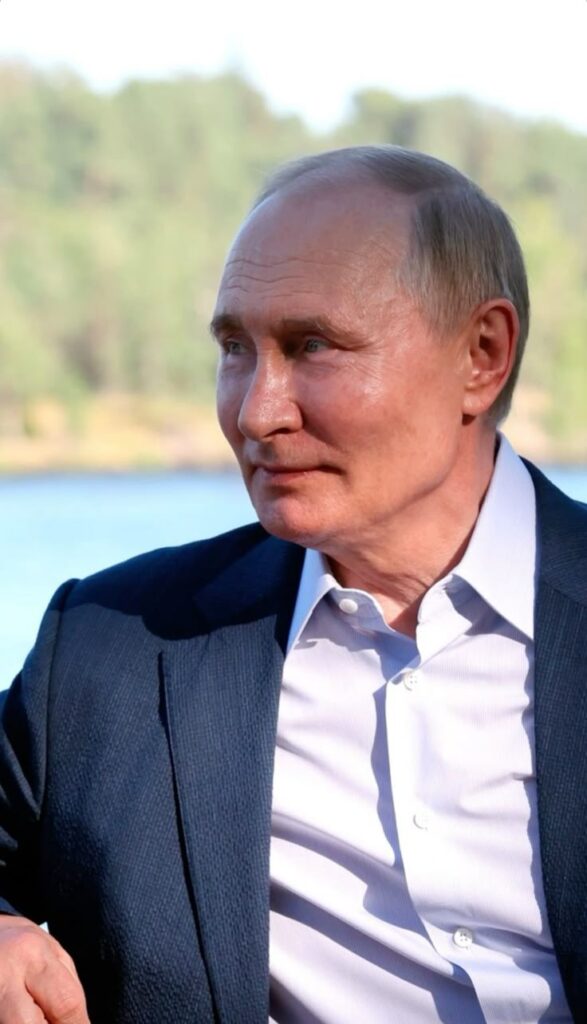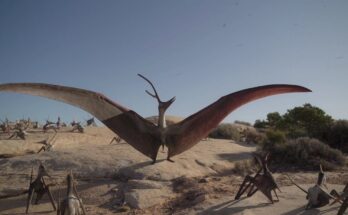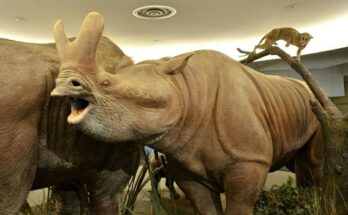Vladimir Vladimirovich Putin, born on October 7, 1952, in Leningrad (now Saint Petersburg), Russia, is a prominent political figure who has significantly influenced Russia’s trajectory in the post-Soviet era. His leadership, characterized by strategic maneuvers and assertive policies, has left an indelible mark on both Russia and the global stage.

Early Life and KGB Career
Putin was the youngest of three children born to Vladimir Spiridonovich Putin and Maria Ivanovna Putina. His father served in the Soviet Navy and later in the NKVD during World War II, while his mother worked in a factory. Tragically, his two elder brothers died young: Albert in infancy and Viktor during the Siege of Leningrad. These early hardships in a city ravaged by war and famine shaped Putin’s resilience and determination.
In 1975, Putin graduated from Leningrad State University with a degree in law. He subsequently joined the KGB, the Soviet Union’s main security agency, where he served for 16 years, rising to the rank of lieutenant colonel. His tenure included a notable period in Dresden, East Germany, from 1985 to 1990, where he was involved in intelligence operations during the waning days of the Cold War. This experience provided him with insights into international affairs and the complexities of geopolitical dynamics.
Transition to Politics
Following the collapse of the Soviet Union in 1991, Putin resigned from the KGB and embarked on a political career in Saint Petersburg. He served as an advisor to Anatoly Sobchak, the city’s mayor, and quickly gained a reputation for his administrative skills and loyalty. His work during this period laid the foundation for his ascent in Russian politics.
In 1996, Putin moved to Moscow to join President Boris Yeltsin’s administration. He held various positions, including Deputy Chief of the Presidential Staff and Director of the Federal Security Service (FSB), the successor to the KGB. His rapid rise culminated in his appointment as Prime Minister in August 1999. When Yeltsin unexpectedly resigned on December 31, 1999, Putin became Acting President, setting the stage for his long-term leadership.
First Presidential Terms (2000–2008)
Putin won the presidential election in March 2000, securing 53% of the vote. His initial years in office focused on stabilizing a country reeling from economic turmoil and political instability. He implemented policies that spurred economic growth, benefiting from rising oil and gas prices, which significantly boosted Russia’s GDP. This period also saw the reassertion of federal authority over regions, notably through the Second Chechen War, which re-established Moscow’s control over Chechnya.
In 2004, Putin was re-elected with over 70% of the vote, reflecting widespread public support. His administration continued to centralize power, curtailing the influence of oligarchs and increasing state control over key industries. While these moves brought stability, critics argued they undermined democratic institutions and led to a concentration of power.
Prime Ministership and Return to Presidency (2008–2012)
Constitutionally barred from serving more than two consecutive terms, Putin endorsed Dmitry Medvedev as his successor in 2008. Upon Medvedev’s election, Putin assumed the role of Prime Minister. During this period, he remained a dominant figure in Russian politics, guiding domestic and foreign policy. The Medvedev-Putin tandem maintained continuity in governance, with policies reflecting Putin’s strategic vision.
Third and Fourth Presidential Terms (2012–2024)
In 2012, Putin returned to the presidency amid allegations of electoral fraud and significant public protests. His third term was marked by a more assertive foreign policy, exemplified by the annexation of Crimea in 2014 following a controversial referendum. This move was widely condemned by the international community and led to economic sanctions against Russia. Domestically, Putin’s administration faced economic challenges due to falling oil prices and the impact of sanctions, leading to a recession in 2015.
Despite these challenges, Putin maintained high approval ratings, attributed to his portrayal as a defender of Russian sovereignty and national interests. In 2018, he was re-elected for a fourth term with 76% of the vote. His continued leadership saw the implementation of constitutional reforms in 2020, allowing him the possibility to remain in power until 2036. These amendments, approved through a national referendum, underscored his intent to maintain a central role in Russia’s future.
Fifth Presidential Term (2024–Present)
In the 2024 presidential elections, Putin secured a fifth term with 88% of the vote, the highest percentage since the dissolution of the Soviet Union. His inauguration on May 7, 2024, marked the beginning of a term expected to extend until 2030. This period has been characterized by continued efforts to strengthen Russia’s global influence and address domestic economic issues.
Foreign Policy and Military Engagements
Throughout his tenure, Putin has pursued a foreign policy aimed at reasserting Russia’s status as a global power. This approach has involved strategic military interventions and alliances.
- Georgia (2008): Under Putin’s premiership, Russia engaged in a brief war with Georgia over the breakaway regions of South Ossetia and Abkhazia. The conflict resulted in Russian recognition of these regions’ independence, a move condemned by many Western nations.
- Ukraine (2014–Present): The annexation of Crimea in 2014 marked a significant escalation in tensions with the West. Subsequently, Russia has been accused of supporting separatist movements in Eastern Ukraine, leading to ongoing conflict and strained relations with NATO and the European Union.
- Syria (2015–Present): Russia’s military intervention in the Syrian Civil War in support of President

